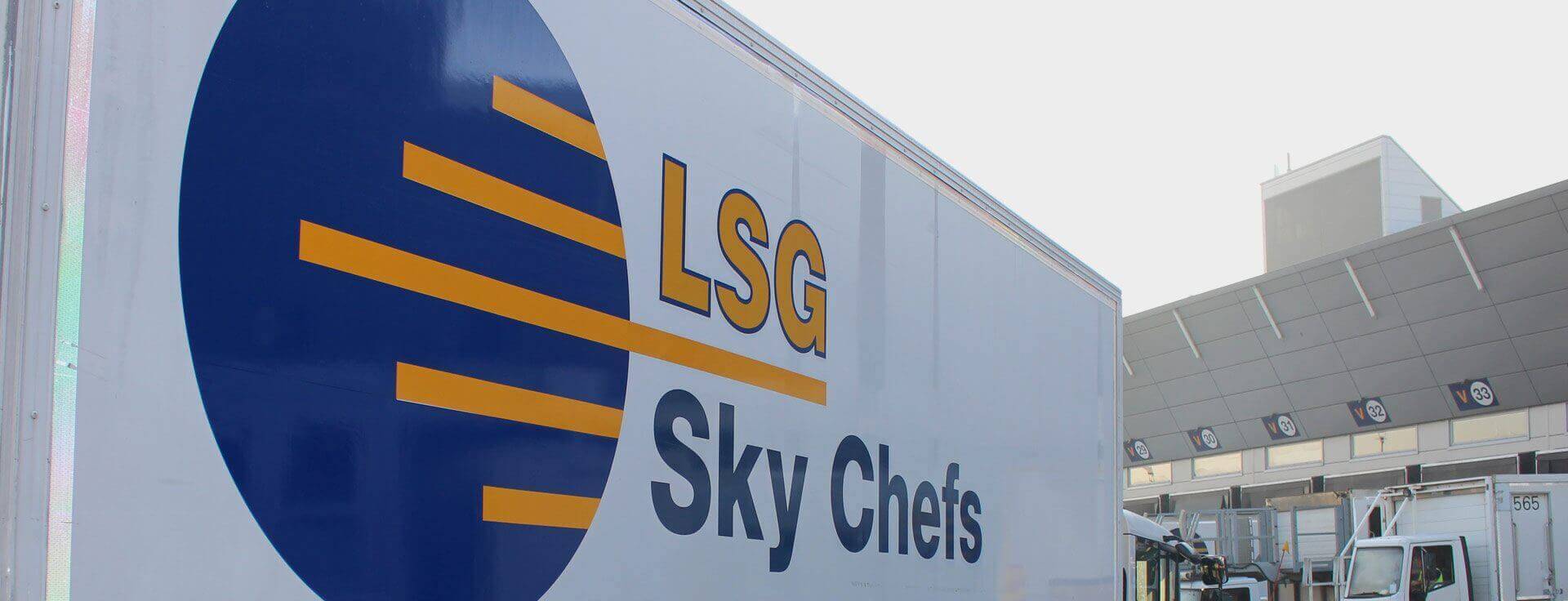Jeremy's World: That was then, this is now
This is a special feature from PAX International's April World Travel Catering and Onboard Services Hamburg 2020 edition.

Lufthansa Group announced in December 2019 an agreement for sale of LSG Group's European operations to gategroup
“Fasten your seat belts. It’s going to be a bumpy night.”
For cinematic fans, these words – from the 1950 American drama film All About Eve – will resonate as we look at the state of the airline provisioning industry at the start of a new decade.
Ten or 20 years ago, anyone suggesting that gategroup would buy LSG’s European kitchens would have elicited calls to the funny farm, but then again, much of what has happened since would have been considered unimaginable. For example, British Airways selling supermarket sandwiches, Air France and KLM Royal Dutch Airlines in a joint venture, Thomas Cook being no more, Boeing in trouble, Alitalia still going, Unicorn food, President Donald Trump… none of these were thinkable…and yet here they are in 2020.
So where are we and why?
Just four short years ago in 2016, 44 percent of the world's caterers were gategroup and LSG Sky Chefs. Roughly another 30 percent were made up of others including dnata, SATS, DO & Co., Newrest, Servair, Alpha and Flying Food Group. That’s three quarters of the world’s provisioning capacity shared between just nine providers.
That looks good or bad depending on who you are. The abbreviated story is that gategroup absorbed into the Hainan Airlines Group vortex, but not before it acquired Servair which in turn had taken in First Catering throughout Africa. Meanwhile, Alpha was acquired by dnata and SATS (which divested from Singapore Airlines) merged or took a number of other operators either in joint ventures or management contracts like Brahim’s (Malaysia) and Taj Caterers (India).
Hainan needed cash so now, SATS' owner Temasek Holdings, a Singaporean investment house but is actually the Government of Singapore, has taken 50 percent of gategroup and by default also Servair plus its subsidiaries. Now it adds LSG Sky Chefs’ European operations to its world domination.
So now, almost overnight, an Asian government-owned company has approximately half of the entire world’s provisioning capacity. A company not without controversy either.
In 2006, Temasek acquired the Shin Corporation, owned by the family of then Thai PM Shinawatra which resulted in protestors burning effigies of Singapore’s Ministers Lee and Ho on the streets of Bangkok. The acquisition was seen as an exacerbating factor in the political scandal which led to Shinawatra’s downfall and a legal review.
So, who has to worry about all of this? Well, a lot of third-party suppliers, brokers and facilitators might begin to get antsy. If I was Singapore Airlines, I’d also want to know that I had at least some choices regarding the future of my catering needs, because monopolies are never a good thing.
The big losers will be airlines
I see caterers looking to airline customers for yet more global commitments. But global agreements are generally useless, except to accountants. There is absolutely no guarantee of consistency on such a scale no matter how much they promise and if you tie yourself to a deal on the basis of cost, you will most certainly be constantly fighting the parts of your supply chain that fail to deliver on the promise. The big losers here are going to be the airlines. What's more, they largely have themselves to blame.
Some years ago, at a menu presentation at a client caterer, I took a junior airline visitor to task who was asking for ridiculously detailed cost information which would be of no help to pricing even if the truth were to be revealed – which of course, it wouldn’t.
I asked him if this was information he really needed or had been asked to get by some accountant back at Airline House. He simply didn’t grasp the fact that every single burden placed upon the caterer has to be paid for. By the airline. Therefore, ultimately the passenger.
It is this attitude to cost and price that has brought us to where we are. Yes, the airlines will say there are multiple complex issues concerned with running an airline that contribute to the pressures on catering costs. But the cost of provisioning is tiny compared to the overall operation. Plus, as I have said relentlessly for 40 years, food and service are major measures of the brand from the passenger’s perception.
One might say that this is all the fault of the passengers whose relentless pursuit of ever cheaper fares puts pressure on the airlines. Finding savings in variables like provisioning is a lot easier. In provisioning, however, we now have a complex multi-layered supplier system that in turn, adds cost instead of just letting the caterer do their job to a budgeted service-level agreement.
Starting back in the 90s, airlines thought by outsourcing catering management they would save money. One might observe that Lufthansa Group’s reasons for offloading its caterer are intertwined with other non-core operations which may be true. Independent caterers and facilitators replace that service – at a cost. The contracts and systems are so muddled that smaller operators stand no chance of competing and three quarters of the costs of catering aircraft these days are to cover administration and logistics.
Looking forward, I have to say it does not look healthy. From the perspective of 20 years ago, the world does seem to have gone crazy. Many airlines are still government owned and operated so let us see what, if any, political fallout may result if Temasek decides to make another controversial investment. Is this As Good as It Gets? Sell crazy someplace else. We’re all stocked up here!

